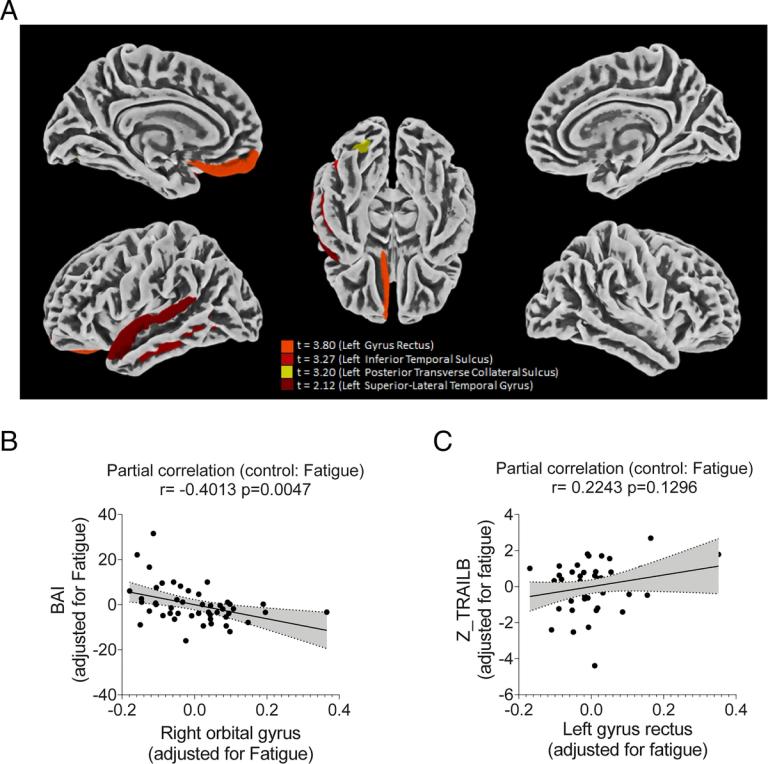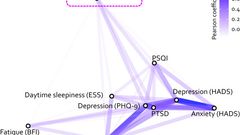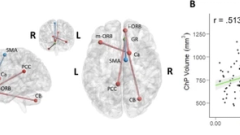Although increasing evidence confirms neuropsychiatric manifestations associated mainly with severe COVID-19 infection, long-term neuropsychiatric dysfunction (recently characterized as part of “long COVID-19” syndrome) has been frequently observed after mild infection. We show the spectrum of cerebral impact of severe acute respiratory syndrome coronavirus 2 (SARS-CoV-2) infection, ranging from long-term alterations in mildly infected individuals (orbitofrontal cortical atrophy, neurocognitive impairment, excessive fatigue and anxiety symptoms) to severe acute damage confirmed in brain tissue samples extracted from the orbitofrontal region (via endonasal transethmoidal access) from individuals who died of COVID-19. In an independent cohort of 26 individuals who died of COVID-19, we used histopathological signs of brain damage as a guide for possible SARS-CoV-2 brain infection and found that among the 5 individuals who exhibited those signs, all of them had genetic material of the virus in the brain. Brain tissue samples from these five patients also exhibited foci of SARS-CoV-2 infection and replication, particularly in astrocytes. Supporting the hypothesis of astrocyte infection, neural stem cell–derived human astrocytes in vitro are susceptible to SARS-CoV-2 infection through a noncanonical mechanism that involves spike–NRP1 interaction. SARS-CoV-2–infected astrocytes manifested changes in energy metabolism and in key proteins and metabolites used to fuel neurons, as well as in the biogenesis of neurotransmitters. Moreover, human astrocyte infection elicits a secretory phenotype that reduces neuronal viability. Our data support the model in which SARS-CoV-2 reaches the brain, infects astrocytes, and consequently, leads to neuronal death or dysfunction. These deregulated processes could contribute to the structural and functional alterations seen in the brains of COVID-19 patients.
Morphological, cellular, and molecular basis of brain infection in COVID-19 patients
Aug 11, 2022|Proceedings of the National Academy of Sciences

Related Content
![Metabolic brain changes in post-acute COVID-19: systematic review and meta-analysis of [18F]-FDG-PET findings](/_vercel/image?url=%2Ftcl-fallback-169.jpg&w=320&q=100)
Metabolic brain changes in post-acute COVID-19: systematic review and meta-analysis of [18F]-FDG-PET findings
ABSTRACT Individuals with long COVID exhibit neurological and psychiatric symptoms that often pe...

Long COVID is associated with severe cognitive slowing: a multicentre cross-sectional study
Background: COVID-19 survivors may experience a wide range of chronic cognitive symptoms for mont...

Brain effects of mild COVID-19 in healthy young adults: A pilot study
ABSTRACT Rationale and objectives This study examined the brain effects of mild severe acute re...

Choroid plexus volume is enlarged in long COVID and associated with cognitive and brain changes
ABSTRACT Patients with post-COVID condition (PCC) present with diverse symptoms which persist at...

Variables associated with cognitive alterations in a cohort of COVID-19 survivors at a tertiary hospital in Mexico
ABSTRACT Background Cognitive impairments are one of the most common, insidious, and disabling ...